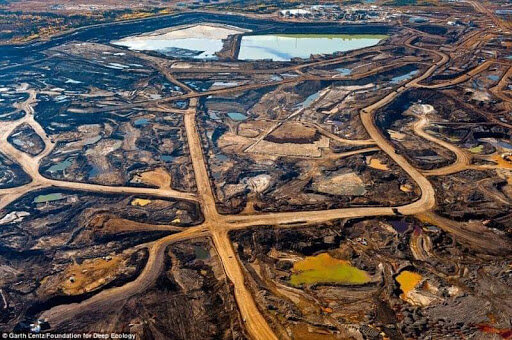Written By Guest User, Posted on December 13, 2019

The Alberta Government approved the May River project Thursday at the discretion of Alberta’s Energy Regulator.
Located southeast of Fort Murray, the pipeline will produce 12,000 barrels a day during its first phase, up to 80,000 barrels a day by 2023.
According to Alberta’s Energy Minister, Sonya Savage, “this project is in the best interest of Alberta, and is another example of how we are responsibly developing our resources.”
In a TNT Exclusive with local MP David Yurdiga, we discussed the effects the project would have on residents and what it means for Canada’s energy sector, moving forward.
Member of Parliament David Yurdiga volunteering at a pancake breakfast July 2019.
TNT: With an eventual output of 80,000 barrels a day, is the May River project a sign of good things to come for Alberta’s energy sector?
Yurdiga: MEG Energy’s May River project could answer the prayers of many rural Albertans looking forward to getting back to work. 52,500 jobs in the industry were lost in 2015 and 2016, the bulk which came from this province.
While we have a lot of challenges to face in the coming years, including a lack of export pipeline capacity and low commodity prices, it’s extremely heartening to see a major investment in our industry, again. We are hoping this project is a sign of good things to come.
TNT: From the collapse in oil prices to the devastating Fort Mac fires a few years back, can residents rejoice in spite of recent hardships to their communities?
Yurdiga: There is still a lot of road between here and a fully functional May River facility, but I think any good news is exactly what we need. Given MEG Energy is committed to increasing output significantly between now and 2023 should ease some concerns moving forward.
TNT: It took six years for the May River project to get approval. How crucial is this for Alberta, given the recent departure of oil and gas producers?
Yurdiga: The oil and gas industry is our lifeblood. It employs close to one-sixth of all Albertans despite the 2014 collapse in oil prices. Asking how crucial new projects are to our way of life, is like asking how crucial the heart is to the human body.
We need the industry to thrive and to renew hope in our province. To combat the rise in suicide amongst former employees of the industry and unemployment amongst younger males, which has surpassed 20 per cent. We owe it to ourselves and to their loved ones to make it right.
TNT: Since 2016, Canada has had one pipeline application, while America has had 14. What does this say about the lack of investment coming to this province?
Yurdiga: It says what we all know. The federal government, under Justin Trudeau, has worked very hard to make Canada closed for business. From Bill C-69 and Bill C-48 to federal funding for the environmentalist lobby, the current business environment has seen investment flee the province. Notably, south of the border to Texas. Companies don’t even want to start the approval process, forget about making it through to finally build a pipeline.
TNT: What does Canada need to do to compete with rival energy-producing nations? What can we do to combat low commodity prices and the pipeline crisis facing this country?
Yurdiga: Canada’s provinces need to act like they are playing for the same team. Working toward the same goal. When an energy producer needs to get its product to market, the question should be “how can we do it most safely?” Right now, the first question is “how can we avoid getting more hydrocarbons to market?”.
When experts decide that a pipeline is the safest method, which it is, the next question should be how do we build it in the safest way. Right now, we ask how many critics of the project should be given a public platform to help shut it down.
If we collectively start asking how we can develop Canada’s resource sector, rather than how can we hobble it, the industry will become more profitable and employment will rise.
TNT: What is the “moral value” of our ethical crude, both to Canadians and globally?
Yurdiga: This entire planet runs on the modern miracle that is the hydro-carbon. Someone is going to have to produce them, whether environmentalists like it or not. Right now money, vast amounts of money, is flooding into countries and governments that: don’t care about the environment, don’t care about democracy, and don’t care about human rights.
If you don’t want Canada exporting oil, you are supporting third world dictatorships that have little to no regard for human rights or any concern for the environment.
Hey there You have done a fantastic job I will certainly digg it and personally recommend to my friends Im…